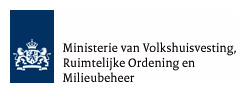UPDATE: "Women and their Toxic World" launched at European Parliament
Report from the WECF event on 4 October
09.10.2006 |Daniela Rosche & Sascha Gabizon
Panel of speakers during the launch
“Women and their toxic world” is the first brochure written for and by women on chemicals in every day life. The publication examines how women’s lives and that of future generations in Europe are threatened by hazardous chemicals, why strong policies such as REACH are needed to end this threat and what women can do to protect themselves. The foreword of the publication was written by MEP Hiltrud Breyer.
The WECF publication Women and their Toxic World can be downloaded: "Women and their toxic World".
- Hiltrud Breyer, MEP (who also wrote the introduction to the WECF publication
- Daniela Rosche, International Policy Coordinator and author of the publication
- Peggy Maguire, Director of the European Institute for Women’s Health
- Cecile Greboval, Policy Director of the European Women’s Lobby
- Zita Gurmai, MEP, Head of the PSE Women’s Group at the European Parliament and Vice Chair of the Committee on Women’s Rights and Gender Equality
Apart from its vital contribution to protect women’s health and that of future generations, REACH is also part of the EU’s Gender Equality Roadmap which mentions chemicals and their effects on women’s health explicitly.

Peggy Maguire during speech (right) with Daniela Rosche (left)
Peggy Maguire, European Institute of Women’s Health, cited a WHO report which indicates that at least 15-20% of all illnesses in the European Union are caused by environmental pollution. The WHO notes that this is a conservative estimate, as still little is known on the cocktail effects of the more than 100.000 chemicals European citizen’s are confronted with, of which less than 10% have been researched on their health effects.
Therefore, it is essential that at the 2nd reading of the REACH draft regulation MEPs vote for a strong amendment on substitution, which provides the legislative framework to move to a fast substitution of hazardous chemicals by non-toxic ones. At the 2nd reading MEPs should also achieve that the chemical safety report for low tonnage chemicals is added to REACH. MEP Hiltrud Breyer argued that REACH is a win-win regulation, protecting the lives of European women and children, and providing a market for new innovative products for the chemical industry. REACH should become a consumer issue in every European household. MEP Zita Gurmai called on the women’s organisations to organise a joint campaign on this issue, collecting signatures and organising press events, to advocate for substitution of hazardous chemicals.

MEP Hiltrud Breyer during speech, with Cecile Greboval (left) and Daniela Rosche (right)
During the discussion following the presentations, participants amongst others discussed the negative health effects hazardous chemicals such as breast cancer. Breast cancer is on the rise in all European countries, and that in particular patients are getting younger and younger, even 18 year old women are already suffering from breast cancer. Helen Lynn of the UK’s Women’s Environmental Network (WEN) their webpage]commented that only a few percent of breast cancer cases can be explained by genes, the other 90% are possibly caused by the cocktail of chemicals women are exposed to in their daily lives and workplaces. The proposed EU chemicals regulation REACH should help to prevent these hazardous chemicals from entering unknowingly into the products women use.
Sascha Gabizon of WECF announced the upcoming High Level Roundtable organised by WECF on November 27th in Brussels, where 2 US medical professors will present latest research results on how 1 out of 6 babies born in the US suffer brain damage from the cocktail of more than 200 different hazardous chemicals received during pregnancy.


Cecile Greboval during her speech
MEP Hiltrud Breyer argued that REACH is a win-win regulation, protecting the lives of European women and children, and providing a market for new innovative products for the chemical industry. REACH should become a consumer issue in every European household.
Sascha Gabizon of WECF announced the upcoming High Level Roundtable [link to calendar] organised by WECF on November 27th in Brussels, where 2 US medical professors will present latest research results on how 1 out of 6 babies born in the US suffer brain damage from the cocktail of more than 200 different hazardous chemicals received during pregnancy.
Download the Press Release on this event.


































